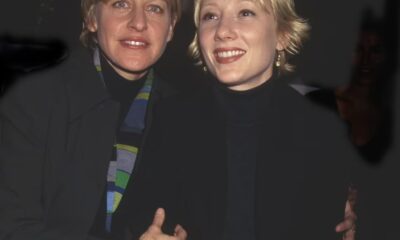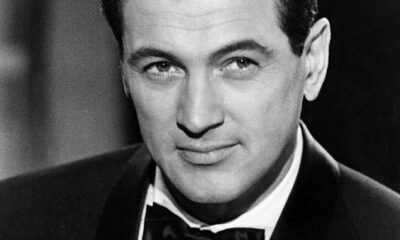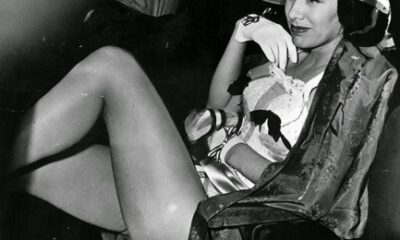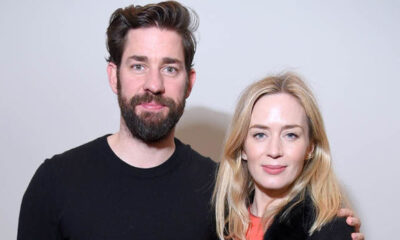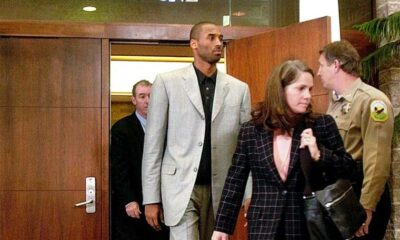All round
Robin Williams’ widow clarifies the “many misunderstandings” about his death
Susan Schneider Williams, the late Robin Williams’ wife, has spoken out in a new interview about the numerous “misunderstandings” surrounding her husband’s death.
In 2014, at the age of 63, the much-loved actor and comedian committed suicide. Robin had Lewy Body Dementia, which had not been identified before his death, according to the autopsy results. Anxiety, memory loss, hallucinations, and sleeplessness are common in people with LBD, and these symptoms are frequently preceded or followed by Parkinson’s symptoms.
Schneider Williams said she decided to create the documentary because “there were so many misunderstandings out there about what had happened to him, and about Lewy bodies” in a recent interview with The Guardian.
“It infuriated me when the media said he’d been drinking,” she tells the newspaper. “I know there are recovering addicts and people dealing with depression who look up to him, and they deserve to know the truth.”
Schneider said she learned of her husband’s diagnosis following his death, “The doctors said to me after the autopsy: ‘Are you surprised that your husband had Lewy bodies throughout his entire brain and brain stem?’
Trending:
“I didn’t even know what Lewy bodies were, but I said: ‘No, I’m not surprised.’ The fact that something had infiltrated every part of my husband’s brain? That made perfect sense.”
Susan believes the suggestion that Robin died as a result of depression, alcoholism, or both illustrates “how we as a culture don’t have the vocabulary to discuss brain disease in the way we do about depression. Depression is a symptom of LBD and it’s not about psychology – it’s rooted in neurology. His brain was falling apart.”
Schneider Williams also said that her late husband was never diagnosed while living, and that he committed suicide a week before his visit at a neuropsychological testing center.
“I think he didn’t want to go,” she said. “I think he thought: ‘I’m going to get locked up and never come out.’”
Susan is featured in the new documentary Robin’s Wish, which chronicles the actor’s final days as he learns of his Lewy disease diagnosis.
“If my husband weren’t famous I would not have put myself through this,” she said.
Williams’ wife has already spoken about the filmmaking process, claiming that it helped her understand more about the state Robin was in near the end of his life.
“Armed with the name of a brain disease I’d never heard of, I set out on a mission to understand it,” she told Entertainment Weekly, “and that led me down my unplanned path of advocacy.”
“With invaluable help from leading medical experts, I saw that what Robin and I had gone through, finally made sense — our experience matched up with the science.”
Mrs. Doubtfire, Good Morning Vietnam, and Disney’s Aladdin were among Williams’ outstanding films. In Good Will Hunting, he received an Oscar for his supporting role as a psychotherapist.
Life and career
Robin Williams was born in Chicago, Illinois, in 1951.
Williams was a versatile and talented actor, known for his comedic and dramatic roles in film, television, and stage.
Williams studied at the Juilliard School in New York City, where he developed his skills as a comedian and actor.
Williams made his television debut in the late 1970s, appearing in the variety show The Richard Pryor Show.
Williams’ breakthrough role came in the 1980s, when he starred in the sitcom Mork & Mindy, playing the eccentric and lovable alien Mork.
Williams’ film career took off in the 1980s and 1990s, with memorable roles in films such as Good Morning, Vietnam, Dead Poets Society, and Mrs. Doubtfire.
Williams was known for his improvisational and energetic style of comedy, and was widely regarded as one of the best stand-up comedians of his generation.
Williams won multiple awards for his acting and comedy, including four Golden Globe Awards and two Screen Actors Guild Awards.
In addition to his successful career, Williams was also known for his philanthropy and activism. He supported a number of charitable causes, including homelessness, AIDS research, and education.
In 2009, Williams received the Kennedy Center Honors, recognizing his contributions to American culture.
Despite his successes, Williams struggled with addiction and mental health issues throughout his life. He struggled with alcoholism and drug addiction, and was diagnosed with depression and anxiety.
In 2014, Williams died by suicide at his home in California. He was 63 years old.
Williams’ death shocked and saddened the entertainment industry and his fans, and sparked a national conversation about mental health and addiction.
Williams was cremated, and his ashes were scattered in San Francisco Bay.
In the years following his death, Williams’ family, friends, and fans have paid tribute to his life and legacy.
In 2015, a documentary about Williams’ life and career, titled Robin Williams: Come Inside My Mind, was released.
In 2018, a statue of Williams was erected in his hometown of Chicago, honoring his contributions to the city and to American culture.
Williams’ death was ruled a suicide, but his family and friends have said that he was also suffering from a degenerative brain disorder called diffuse Lewy body dementia.
Williams’ wife, Susan Schneider, wrote a book about her husband’s life and legacy, titled Robin.
Williams’ daughter, Zelda Williams, has become an actress and activist, following in her father’s footsteps. She has spoken publicly about her father’s struggles with mental health and addiction, and has worked to raise awareness and support for mental health causes.
Popular Posts:
- Queen’s damning reply to Prince Harry’s ‘what Meghan wants, Meghan gets’ outburst
- Here’s Why Meghan Markle Cannot File Harry Divorce In US
- Meghan Markle ‘escorted out of Prince Charles’ garden party’ in unearthed video
- Here’s Why Meghan Markle Cannot File Harry Divorce In US
- Prince Harry ‘kept asking for more money’ and Prince Charles got ‘fed up’
- Prince Charles ‘deliberately’ left Meghan out of Archie’s birthday message
- Prince Harry and Meghan ‘blamed staff when they didn’t get their way’
- Prince Harry has been ‘brainwashed’, says biographer
- Meghan Markle blogged about Kate’s wedding before claiming she ‘didn’t know much about royals’
- REVENGE: Beatrice’s pregnancy announcement total dig at Meghan Markle
- Damage is done: Prince Harry warned rift with Prince Charles is widening beyond repair
- Meghan Markle Oprah interview claims debunked by own blog post
- Prince Harry faces Backlash for podcast interview, Duke ‘making too much noise’
- Queen and Charles deeply upset with Harry’s rants
- Harry and Meghan are ‘trolling the world’ with hidden photos Archie, says their biographer
- Prince Harry Demands wife Meghan Markle Be Part Of Princess Diana’s 60th Birthday Tribute Or He Won’t Show
- Harry and Meghan are ‘trolling the world’ with hidden photos Archie, says their biographer
- Meghan Markle’s Plastic Surgery
- Meghan and Harry CAN’T do another bombshell interview – ‘Can only do one’
- How Kate Middleton earned the Queen’s respect
- William and Kate prove they are NOT ‘trapped’ despite Harry claims
- Kate Middleton ‘won’t be walked over by Meghan Markle,’ says Jenny Eclair
- Meghan ‘wasn’t too keen’ on living in smaller place than Kate and William after royal wedding
- Meghan Markle was a ‘failure’ in Hollywood, biographer reveals
- Meghan and Harry are trying to start ‘alternate woke Royal Family,’ Expert says










